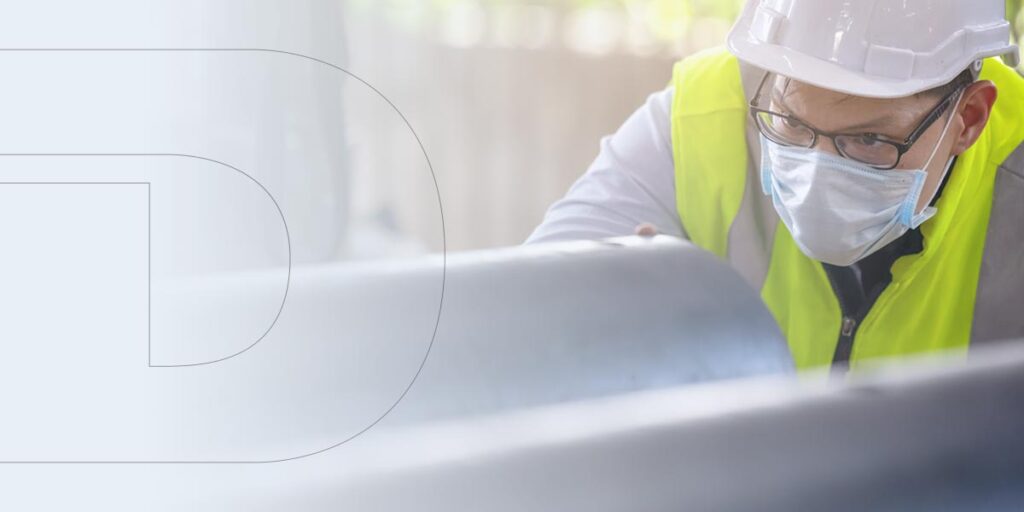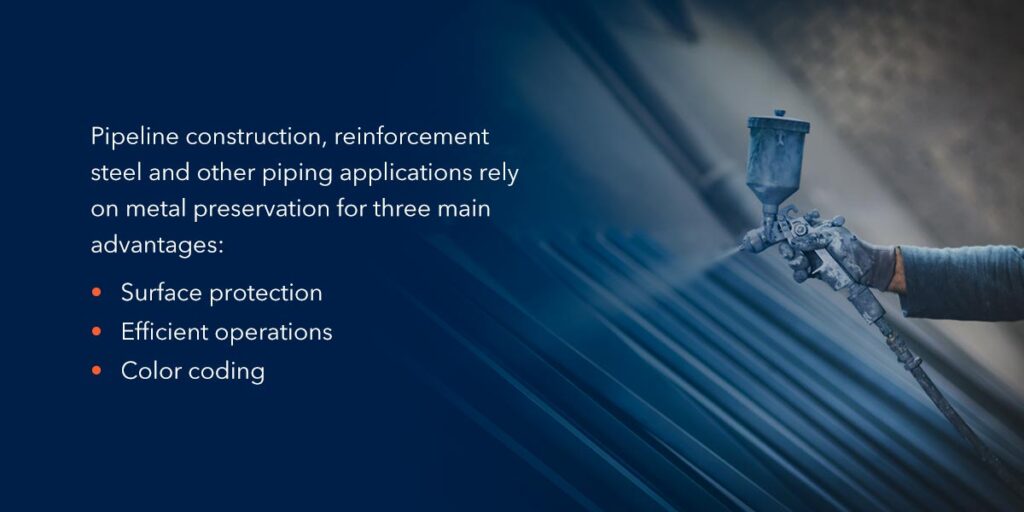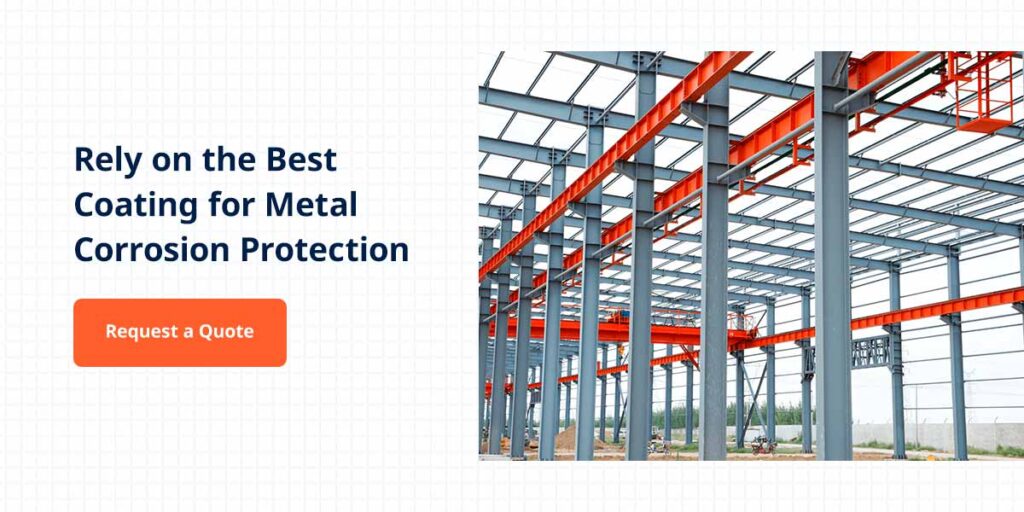

Corrosion and other factors can cause incredible loss to your operations in the form of physical damage, minimized productivity, increased maintenance costs and replaced components. Fortunately, when you apply a protective coating to pipes and other parts, you can decrease losses to protect your assets and bottom line. Steel pipe coating creates a barrier between metal pipes and external environments, making it an essential component whether you work in construction, aerospace manufacturing or another industry.
Once steel is produced, it begins to reoxidize to its original state of iron oxide. However, if you work with steel and metal pipes, a protective coating ensures preservation and increased durability.
Steel and metal pipes are subject to corrosion, acidic elements, abrasions, electric currents and other determinants that can lead to disastrous outcomes, such as leaks and steel wall explosions. When properly treated with coating, pipes can benefit from extended life spans and additional protection. Protective coatings create a barrier between the steel’s surface and oxygen, which causes oxidation.
There are a variety of coatings that can protect metal and steel parts applied through different processes like spraying, electroplating, conversion, hot dipping and roll coating. The various coating paints can be pigmented with aluminum, lead, zinc or powdered stainless steel. Each technique addresses different end uses and environments and other properties like gloss and cure time.
Steel pipe coatings can protect both internal and external surfaces by using metallic and non-metallic materials such as:
The list of available materials used in a steel pipe coating machine is extensive, so before the protective coating process begins, surface preparation like blasting is important.
Each technique, plus the metallic and non-metallic materials, provides various degrees of protection by containing a combination of solvents or oxidizers, or both.
An external pipe coating machine can support the outside surface of a metal or steel pipe. Similarly, pipeline coating machines can work to internally protect the pipe in many industrial applications. For example, pipe lining can provide internal protection against chemicals and other fluids.
Further, pipe cladding uses quality metals to form a tough layer of protection against corrosion. The cladding process involves the inner part of a pipe, placing a high-grade material over a low-grade base material. Cladding is the bond between high and low-grade materials through welding to enhance the coating process. Clad pipes are especially useful for fluid applications that otherwise deteriorate carbon-manganese steel structures.

Pipeline construction, reinforcement steel and other piping applications rely on metal preservation for three main advantages:
Any industry can benefit from steel and metal coatings, ranging from agriculture, automotive and electronics to industrial, marine and warehousing.
Depending on the industry, a pipe may be under excessive pressure, subject to the elements, supporting harsh chemicals or in high contact with other components. Steel pipes can be vulnerable to damages, such as:
Without protection against these forces and many others, disaster can strike in various forms. Steel coatings create rigid and durable surfaces by increasing surface strength that protects high-contact parts, pipes submerged underwater and pipes that undergo daily operational wear. Protective coatings also provide lubrication for parts like fasteners for improved torque.
Considering your long-term goals as a manager or engineer, protective coatings are cost-effective long-term solutions that are worth the upfront investment. Ensuring your pipes and other metal products are properly coated extends the life span of each surface. Coating reduces regular maintenance and replacement costs, allowing you to allocate your budget to other parts of your business.
Automated coating systems also provide consistent finishes and faster production lines as opposed to manual coating. With more efficient operations to support full or partial and internal or external coatings, you can ensure you remain a competitive force within your industry. Modifications are also easier to apply with automated processes, giving you precise solutions that match your specifications.
A pipe painting machine can coat steel pipes with a protective layer of various elements, ranging from aluminum and zinc to lead and stainless steel. Protective coatings can also be pigmented to support color coding and signaling.
Color-coded pipes provide warnings and communications about which ones your team needs to replace or avoid during construction and manufacturing. Different colors help workers identify the pipe’s purpose, which also helps prevent damage to important steel pipes during drilling and other operations.
Identifying pipes by their obvious color-coded marks is a superior option to guessing or using other means of distinction that can easily go unseen.
Partnering with the right pipe coating machine manufacturer can help you understand which solutions are best for your applications. Dubois Equipment experts can evaluate steel coating effects on the pipe’s environment, plus the mechanical and thermal conditions of the area.
Here are a few questions to consider before getting started:
Once you fully understand the application of the pipe and its environment, we can better assist you in finding a steel coating solution that targets your specifications.

Dubois Equipment Company offers pipe coating machine solutions that deliver protective coatings in the form of clear coats and paint via spray machines and vacuum coaters. We find success in integrating multiple machines and solutions to match your expectations, ensuring your pipes last long term.
Dubois metal tube and pipe coating systems provide the high-quality coatings you need to ensure your pipe products are protected and ready for the construction industry. We offer customized solutions with products made in the U.S. and are here to deliver exceptional pipe coating to fortify your operations and deliver efficiency.
Reach out to a Dubois representative to learn more about our steel coating or request a quote. You can also visit our tube and pipe coating page to gain more insight.